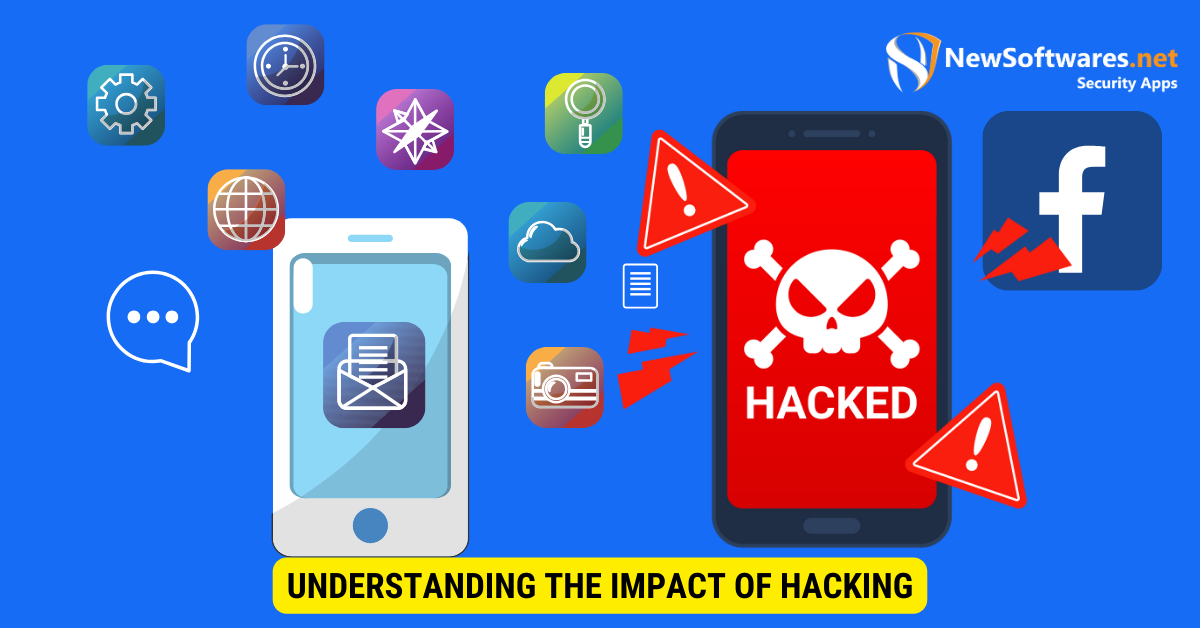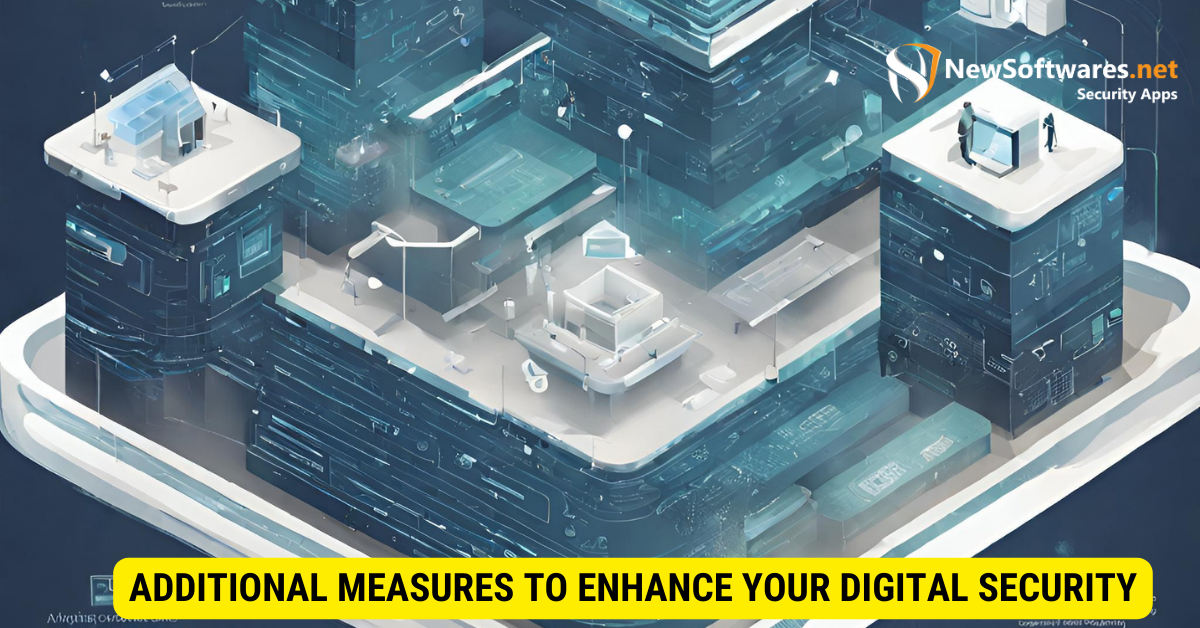To secure your data, Facebook, and apps after hacking, take immediate steps like identifying signs of a data breach, changing passwords, monitoring financial statements, enabling two-factor authentication, adjusting Facebook privacy settings, updating apps regularly, and enhancing digital security with tools like antivirus software and VPNs.
In today’s digital age, the security of our personal data has become more crucial than ever. With the ever-increasing number of hacking incidents, it is important to understand the impact of hacking on our lives and take necessary measures to protect ourselves. This article will guide you through securing your personal data, Facebook, and apps after a hacking incident.
Understanding the Impact of Hacking

With the rise of technology, hacking has become a prevalent issue affecting individuals and businesses alike.
Unauthorized entry into personal data can result in serious outcomes like identity fraud, monetary setbacks, or tarnishing one’s image. It is essential to recognize the significance of personal data security and take proactive steps to safeguard against potential breaches.
Hacking is a complex and ever-evolving field that needs a deep understanding of computer systems and networks. Hackers, also known as cybercriminals, employ various techniques to gain unauthorized access to sensitive information. These techniques can include phishing attacks, malware injections, or exploiting software vulnerabilities.
One of the most significant impacts of hacking is identity theft. Hackers can assume someone’s identity and commit fraud when they access personal data. This can result in financial loss, damage to credit scores, and a long and arduous process of reclaiming one’s identity.
The Importance of Personal Data Security
The inherent worth of your personal information is significant, and ensuring its safety from potential threats is vital. Crucial details such as your social security number, banking information, and email credentials can be misused by cybercriminals for nefarious purposes. By giving precedence to the security of your details, you can reduce the chances of becoming a victim of identity fraud or monetary scams.
Setting robust passwords and updating them periodically is a foundational approach to safeguarding personal details. Moreover, activating two-factor authentication offers added security by demanding an additional validation step before accessing your profiles. Exercising prudence when disclosing personal data on the web and steering clear of dubious links or unverified file downloads is recommended.
Moreover, regularly updating your devices and applications is key to bolstering your data protection. Updated versions often come equipped with fixes that tackle identified security lapses, making unauthorized breaches challenging. Consistently backing up your information is also a critical measure that can cushion the effects of a potential data compromise.
The Risks of Social Media and App Hacking
In today’s interconnected world, social media and smartphone apps have become important to our daily lives. However, they also present potential vulnerabilities. Hackers can exploit the security flaws of these platforms to gain unauthorized access to your personal data. The risks can range from using your personal information to compromising online privacy. Awareness of these risks and taking appropriate measures to mitigate them is essential.
Reviewing and adjusting your privacy settings is crucial when using social media platforms to control the amount of personal information visible to others. Limiting the information you share publicly can significantly decrease the risk of being targeted by hackers. Additionally, being cautious of the apps you download and granting permissions only to trusted applications can help minimize the chances of falling victim to app hacking.
Another risk associated with social media and app hacking is the potential for social engineering attacks. Hackers can use information gathered from your online presence to manipulate you into revealing sensitive information or performing actions that compromise your security. Being vigilant and skeptical of unsolicited messages or requests can help protect against such attacks.
In conclusion, understanding the impact of hacking is crucial in today’s digital age. By recognizing the importance of personal data security and being aware of the risks associated with social media and app hacking, individuals can take proactive measures to safeguard their information. Implementing strong security practices and staying informed about the latest threats can go a long way in mitigating the potential consequences of hacking.
Steps to Secure Your Data After a Breach
When faced with a hacking incident, it is crucial to act swiftly and decisively to minimize the damage. The following steps will guide you through securing your data after a breach.
Identifying Signs of a Data Breach
It is important to recognize the signs of a data breach early on. These signs may include unusual account activities, unauthorized transactions, or receiving emails from unknown sources requesting personal information. By staying vigilant, you can identify a data breach promptly and take immediate action.
A typical indication of a data compromise is spotting unfamiliar transactions on your credit card bill. These might be for items you haven’t purchased or from unknown sellers. It’s crucial to frequently check your bills and promptly alert your credit card provider about any unusual activities.
Another warning sign is getting emails or texts asking for private details like your social security number or login information. Authentic entities won’t solicit this type of data through email or text. Receiving such messages probably points to a phishing effort, and discarding them without replying is best.
In addition to these signs, you may also notice that your online accounts have been compromised. For example, you may find that your social media account has been hacked, with unauthorized posts or messages being sent from your profile. If you notice any unusual activities on your accounts, it is crucial to take immediate action to secure your data.
Immediate Actions to Take Post-Hacking
If you believe your information might be at risk, several immediate steps must be considered. First, update passwords for all digital platforms, including emails, social platforms, and financial accounts. Prioritize the creation of robust, distinct passwords that aren’t straightforward to deduce. You might think about using a password management tool to aid in devising and maintaining intricate passwords.
Once you’ve updated your passwords, you must monitor your monetary records for unusual activities. Frequently scrutinize your banking and credit card details to confirm there aren’t any unauthorized expenditures or deductions. Should you spot any irregularities, get in touch with your bank at once.
Alongside keeping tabs on your finances, informing your bank and credit card providers of any potential breaches is beneficial. They can guide you in enhancing security by activating fraud notifications or providing cards with new numbers. Adopting these precautionary measures helps in thwarting additional unauthorized breaches.
Moreover, think about activating two-factor authentication (2FA) for your digital profiles. It fortifies security by demanding a secondary validation step, like a distinct code dispatched to your phone and your password. With 2FA, the likelihood of unsanctioned breaches dwindles, even if they attain your password.
In conclusion, staying updated on contemporary digital security threats and methods to shield your private details is pivotal. Periodically acquaint yourself with prevalent cyber-attack strategies, such as deceptive emails or harmful software, and grasp ways to recognize and sidestep them. A proactive and well-informed approach augments the defense of your data against subsequent vulnerabilities.
Strengthening Your Facebook Security
Considering the vast amount of personal information stored on Facebook, it is crucial to ensure its security. Here are some steps you can take to reinforce your Facebook security.
Changing Your Privacy Settings
Take control of your privacy on Facebook by customizing your privacy settings. Limit the visibility of your posts and personal information to only the people you trust. Consistently check and refresh these configurations to maintain your privacy.
Enabling Two-Factor Authentication
Dual authentication introduces an additional safeguard for your Facebook profile. When activated, you’ll get a confirmation code either through a text message or a specific verification application every time there’s a login attempt from an unfamiliar device or web browser. This means that even if someone knows your password, they still won’t gain unauthorized entry to your profile.
Protecting Your Apps from Future Hacks
Securing your smartphone apps is essential to prevent any future hacking attempts. Consider the following measures to protect your apps.
Regularly Updating Your Apps
App creators often release updates to address security vulnerabilities. Regularly updating your apps ensures you have the latest security patches installed, making it harder for hackers to exploit known weaknesses.
Using Strong and Unique Passwords
Using strong and unique passwords is one of the simplest yet most effective measures to protect your apps. Avoid using common passwords or sharing the same password across multiple apps. A password manager can help generate and securely store strong passwords for your various accounts.
Additional Measures to Enhance Your Digital Security

In addition to securing your data, Facebook, and apps, there are additional measures you can take to enhance your overall digital security.
The Role of Antivirus Software
Implementing trustworthy antivirus solutions on your gadgets is crucial to deter malware. Consistently refreshing this software ensures potent defense against emerging hazards.
The Benefits of Virtual Private Networks (VPNs)
A Virtual Private Network (VPN) encrypts your internet linking and delivers a secure tunnel for your online activities. A VPN protects your data from prying eyes, especially when using public Wi-Fi networks. Consider using a VPN to enhance your digital privacy and security.
Key Takeaways
- Immediate Response: Swiftly recognize and address signs of hacking, such as unauthorized transactions or suspicious emails.
- Strong Passwords: Always use and regularly update strong, unique passwords for all online accounts.
- Two-Factor Authentication: Enabling 2FA provides an extra layer of security for online accounts.
- Stay Updated: Regularly updating software, apps, and antivirus helps defend against known vulnerabilities.
- Digital Tools: Utilize additional tools like antivirus software and VPNs to enhance online security further.
FAQs
What are the signs of a data breach?
Signs can include unusual account activities, unfamiliar charges on credit card statements, and receiving suspicious emails or texts requesting personal information.
How can I strengthen my Facebook security after hacking?
Change your privacy settings, limit post visibility, and enable two-factor authentication.
What precautions should I take to secure my smartphone apps?
Update your apps regularly, use strong and unique passwords, and consider a password manager to keep track of them.
How can antivirus software and VPNs enhance my digital security?
Antivirus software helps detect and eliminate malware threats, while VPNs encrypt your internet connection, shielding your activities, especially on public Wi-Fi.
Why is two-factor authentication important?
Two-factor authentication adds an extra security layer, requiring a second verification form alongside your password, minimizing unauthorized access risks.
Conclusion
By following these steps and implementing the recommended security measures, you can significantly improve your personal data security, protect your Facebook account, and safeguard your apps from future hacking attempts. Stay proactive, stay informed, and secure in today’s digital world.
